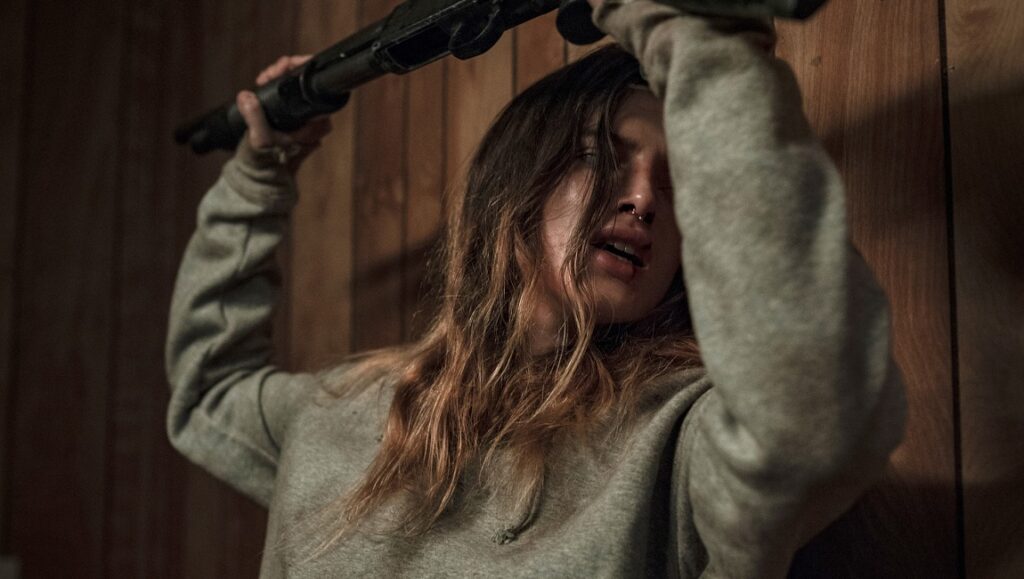Girl is a deeply unremarkable, almost anonymous film that nonetheless testifies to the fascinating, untapped presence Bella Thorne offers.
There isn’t real reason to brood much over Girl, a uniformly monotonous thriller which features broad strokes of anonymity that bleed into a kind of wishful zeal, squandering it’s lite-genre trappings and boasting a directorial sensibility that renders its potentially sharp edges into something more amorphous. So instead, many of my words will be re-focused on a discussion of what Girl reflects within the continuity of Bella Thorne’s career, and how first-time director (and supporting cast member) Chad Faust simultaneously, in an apparent accident, assimilates her distinct mannerisms into the void of anchored plotting.
Thorne, as her career has evolved, seems to have embraced a facade similar to someone like Kristen Stewart, insofar as she has situated herself firmly within what can be described as a bohemian unorthodoxy within the very specific Hollywood diegesis. As a performer, she has never felt like she truly was part of any film she has appeared in, and her recent string of EP credits attached to her starring works further emphasizes, in a strange ontological orientation, the manner in which she seems to drift through the very mise-en-scene of such films. Indeed, her best quality lies precisely within this alienating affinity for morbid curiosity, the very singularity of her screen presence: Thorne constantly appears to look through any performer she works with, leaving her functionally alone in the scenes she occupies, effectively curtailing the totality of the production and instead making of this idiosyncrasy a kind of sponge, capable of consuming all other scenery and surrounding cast within. In other words, she’s a performance artist, if forced to ascribe a label to her method, and it will be a fascinating day when some filmmaker realizes that traditional dramaturgy isn’t something she can accomplish.
And so now we find ourselves at Girl, an unfortunately haphazard work that attempts to shape itself according to Thorne’s presence, and in doing so ultimately allows its flourishes to collapse into a nebulous derivative of faux-Texas Chainsaw back-of-the-woods-isms. Even Mickey Rourke falls victim to the tedium. But then the film drops a twist, one that doesn’t exacerbate the already-buried narrative, and the film’s coda proceeds to deliver a rather surprising moment of pathos, with Thorne’s characterization puncturing the film’s fabric of monotony. It’s a glimpse at an indeterminate something, like drifting off under the spell of a star-filled sky’s abyss, something perhaps affecting in its mystery. In that last glimpse of the unremarkable, we glance again.
Published as part of Before We Vanish | November 2020.


Comments are closed.